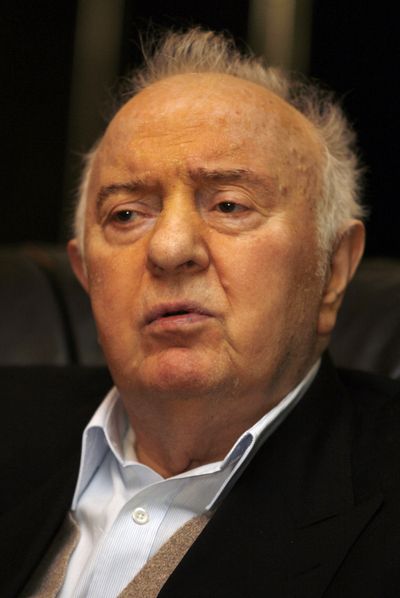Eduard Shevardnadze, former president of Georgia, dies

TBILISI, Georgia – Eduard Shevardnadze, a groundbreaking Soviet foreign minister and later the president of an independent Georgia, died Monday at the age of 86, his spokeswoman said.
Marina Davitashvili said Shevardnadze died after a long illness.
Shevardnadze swept heroically across the international stage in the final years of the Soviet empire, helping topple the Berlin Wall and end the Cold War, but as the leader of post-Soviet Georgia his career in the public eye ended in humiliation.
As Soviet foreign minister, the white-haired man with a gravelly voice was the diplomatic face of Mikhail Gorbachev’s liberalizing policies of glasnost and perestroika. Following the wooden Andrei Gromyko, Shevardnadze impressed Western leaders with his charisma, his quick wit and his commitment to Gorbachev’s reform course.
Shevardnadze helped push through the withdrawal of Soviet troops from Afghanistan in 1989, signed landmark arms control agreements, and helped negotiate German reunification in 1990 – a development that Soviet leaders had long feared and staunchly opposed.
Western leaders would remain grateful for Shevardnadze’s work as foreign minister. But in the former Soviet Union, those nostalgic for a return to superpower status lumped Shevardnadze with Gorbachev in the ranks of the unpardonable.
Shevardnadze resigned in December 1990. A year later, the Soviet Union collapsed in the wake of an attempted hard-line coup against Gorbachev.
Shevardnadze returned to Georgia after its first elected president, Zviad Gamsakhurdia, was ousted in a coup in 1992. Shevardnadze was elected president for a five-year term in 1995.
He survived two assassination attempts, including an assault on his motorcade with anti-tank weapons. Many observers suggested the attacks blunted Shevardnadze’s reformist impulses and left him interested only in holding on to power. Georgia under Shevardadze became plagued by corruption and a deterioration of democracy.
In November 2003, massive demonstrations that became known as the Rose Revolution erupted. After three weeks, protesters led by future president Mikhail Saakashvili broke into a parliament session where Shevardnadze was speaking and drove him out of the building.